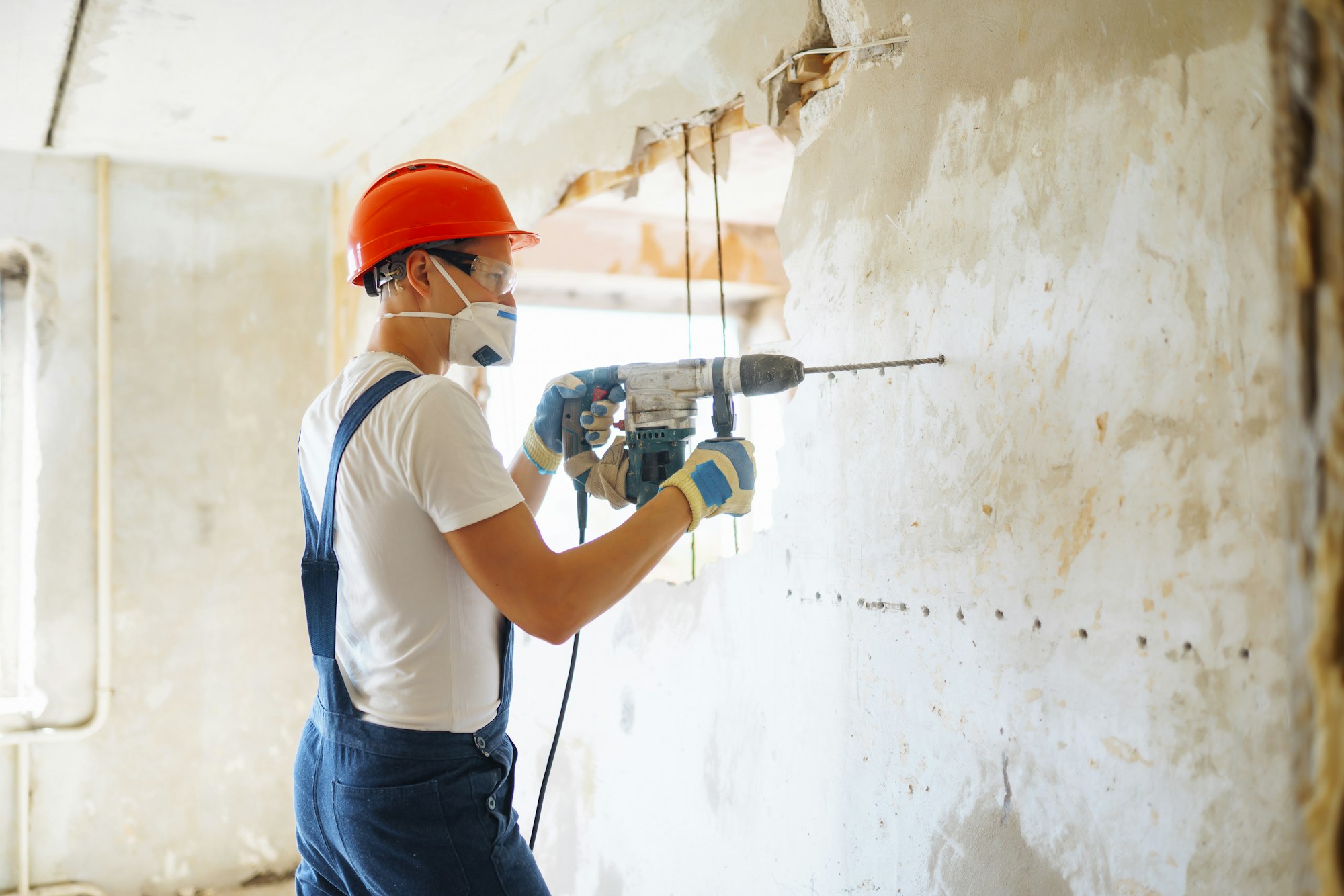Entering the realm of home remodeling involves more than changing your space’s aesthetics. It’s about improving the quality of life in your home and adapting to your evolving needs.
Home renovations go beyond cosmetic changes. They are key to maintaining your property’s structural integrity, modernizing outdated systems, and enhancing comfort and convenience. Tackling essential repairs can protect your home from future damage and lead to significant long-term cost savings. Additionally, well-planned renovations can increase your home’s value, an advantage if you decide to sell.
Different Types of Residential Renovations
Residential renovations come in many forms, each impacting your home’s functionality and value. Popular types include:
- Kitchen remodels are central to many homes. Updates might range from new countertops to a complete layout overhaul.
- Bathroom upgrades, enhancing comfort and resale value with additions like an en-suite or updated fixtures.
- Room additions, accommodating growing families, or adding functional spaces like a home office.
- Exterior makeovers, including landscaping and updates like new siding or outdoor living space improvements, boost curb appeal and functionality.
- Energy efficiency improvements, such as better insulation, energy-efficient windows, or solar panels, reduce utility bills and your carbon footprint.

Your renovation choice should consider your personal needs, your home’s condition, and your budget. Weighing each option’s pros and cons helps in making an informed decision that fits your lifestyle.
Planning Your Home Renovation
Successful home renovations require meticulous planning. This involves setting realistic budgets, aligning renovation styles with your taste, and mapping out a detailed project timeline.
- Setting a Renovation Budget: Start by evaluating your finances and determining your spending limit. Include a contingency fund, typically 10-20% of your total budget, to cover unexpected expenses. Obtain multiple quotes from contractors and negotiate for the best value. A well-planned budget prevents overspending and ensures desired results without financial strain.
- Choosing Your Renovation Style: Select a style that reflects your personality, transforming your house into a personalized sanctuary. Consider various design inspirations, from modern minimalist to shabby chic, and ensure it complements your home’s architecture. Your chosen style should balance personal taste with functionality and aesthetics, keeping long-term appeal in mind, especially if you plan to sell your home.
- Drafting a Renovation Timeline: Discuss with your contractor to establish a realistic timeframe, considering material ordering and delivery, permitting, and construction. Build in flexibility for unexpected delays. Regular updates and open communication with your contractor will help manage disruptions.

Expert Tips for Successful Residential Renovations
- Hire the Right Professionals: Research local contractors with solid references and a portfolio that matches your vision. Check their licensing, insurance, and client reviews. Conduct thorough interviews and remember that the lowest bid may not always offer the best value.
- Make Important Decisions Early: Decide on design elements and materials early to avoid delays, especially for items with long lead times or limited availability.
- Plan for the Unexpected: Be prepared for surprises once renovation starts, especially in older homes. Set aside part of your budget for unforeseen expenses and be ready to adjust your timeline.
Making Your Renovation Eco-Friendly
With growing environmental concerns, many homeowners aim to reduce their carbon footprint and create sustainable living spaces.
- Choosing Sustainable Materials: Opt for low-impact materials like bamboo flooring, recycled glass countertops, and reclaimed wood. Use non-toxic paints and adhesives for better indoor air quality and consider sourcing materials locally.
- Implementing Energy-Efficient Features: Prioritize energy efficiency with LED lighting, high-efficiency appliances, low-flow plumbing, double-paned windows, enhanced insulation, and smart home technology. For long-term sustainability, consider solar panels or green roofs, which may offer tax incentives.

Finishing Touches for Your Renovation
As your project concludes, the final touches are crucial. They define your refreshed living space’s character and feel.
- Landscaping and Curb Appeal: Enhance your property’s appearance with trimmed hedges, flowering plants, and a well-maintained lawn. Update walkways, driveways, and patios with materials complementing your home’s exterior. Add outdoor lighting for ambiance and security.
- Interior Design and Decor: Choose a cohesive color scheme and decor aligning with your renovation style. Incorporate textures and patterns for depth and interest. Select functional items like rugs, curtains, and lighting fixtures to contribute to your home’s design narrative.
Conclusion
A successful residential renovation requires careful planning, budgeting, and professional expertise. Whether upgrading your kitchen, adding a new room, or improving energy efficiency, it’s crucial to hire experienced professionals, consider the latest design trends, and use high-quality.
Plan your dream renovation with Cutter Construction. From kitchen upgrades to energy-efficient improvements, our experienced team is ready to bring your vision to life with professionalism and quality. Contact us to start planning today!










